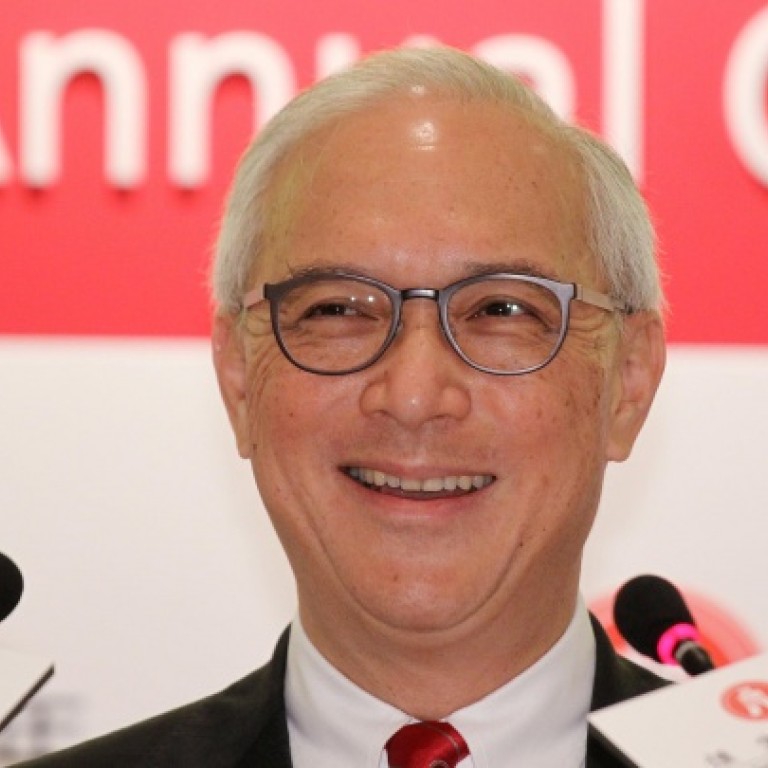
Institutions back huge fee rise for Hang Seng board
Minorities voice objection to the higher payout after no change in the bank's dividends
Hang Seng Bank's minority shareholders yesterday failed to stop a plan to give directors a rise in fees of more than 30 per cent while dividends stay unchanged, after the motion was carried with the overwhelming support of large institutional stakeholders.
Under the proposed revision of fees, Raymond Ch'ien Kuo-fung, the bank's chairman, will take HK$590,000 a year, a jump of 34 per cent from last year. Other directors will each take home HK$450,000 this year, a 32.35 per cent raise from 2012.
The fees for board members are rising but the dividends have been cut after the financial crisis and have not gone up since
The proposal for the new fees package was passed with shareholders representing only 0.09 per cent of the shares voting against it at the bank's annual meeting. About 1,800 shareholders attended the meeting.
The last fee review for directors took place in 2011, when directors' fees were raised more than 20 per cent.
One small shareholder said: "The fees for board members are rising but the dividends have been cut after the financial crisis and have not gone up since." Another shareholder said the management should ensure a similar increase in dividends.
Hang Seng Bank paid a dividend of HK$6.30 in 2008, which went down to HK$5.20 from 2009 to 2011. It edged up to HK$5.30 last year.
Rose Lee Wai-mun, the bank's vice-chairman and chief executive, said the board had no plans to distribute a special dividend, though it was the bank's 80th anniversary.
Ch'ien said the fee rise was proposed for directors because board members have to work harder to meet the new regulatory requirements in the sector.
Lee said the bank's return on equity, which was 22.9 per cent last year, was above that of its peers and the combined return of share price performance and dividends was good.
The stock is up 9.69 per cent so far this year.
Lee said after the meeting: "Hang Seng Bank has no plans to cut jobs and we will go on hiring for risk management and front-line businesses. There will be no significant change in staff strength at the end of this year."
Hang Seng's cost-income ratio, a measure of a bank's efficiency, was 34.4 per cent last year. Lee said the ratio was healthy.
Stuart Gulliver, chief executive of HSBC, the parent company of Hang Seng, said on Monday that he would cut another 14,000 jobs in the next three years to save US$2 billion to US$3 billion in costs.
Gulliver also said Industrial Bank, a mainland bank in which Hang Seng has an interest, could be an asset to sell. Lee, asked if Hang Seng might sell the mainland bank, said she thought it was a good partner for Hang Seng and that she was satisfied with it.
Lee also said demand for loans in the city was low and there was pressure on the industry to lower interest rates to compete for business.
